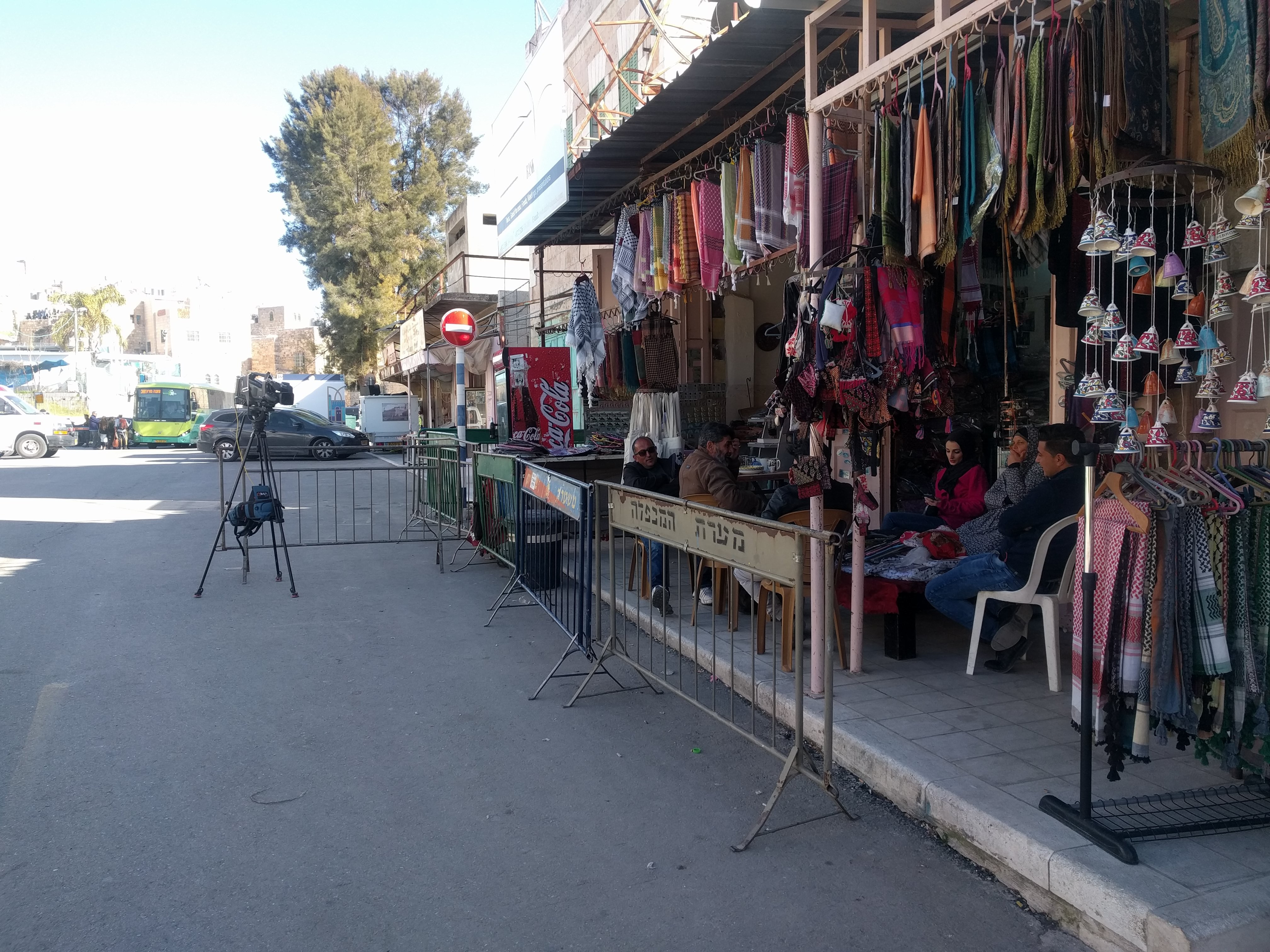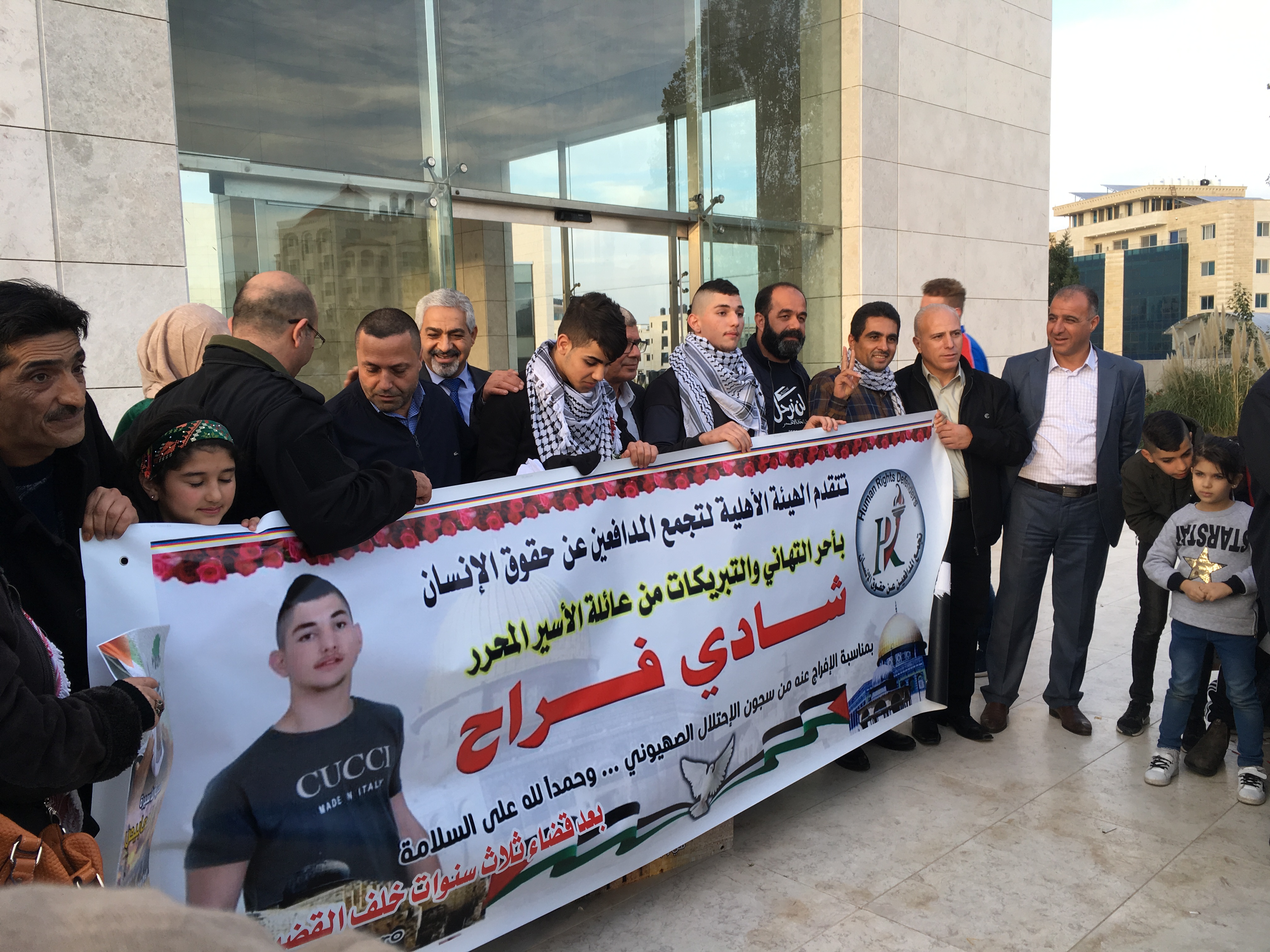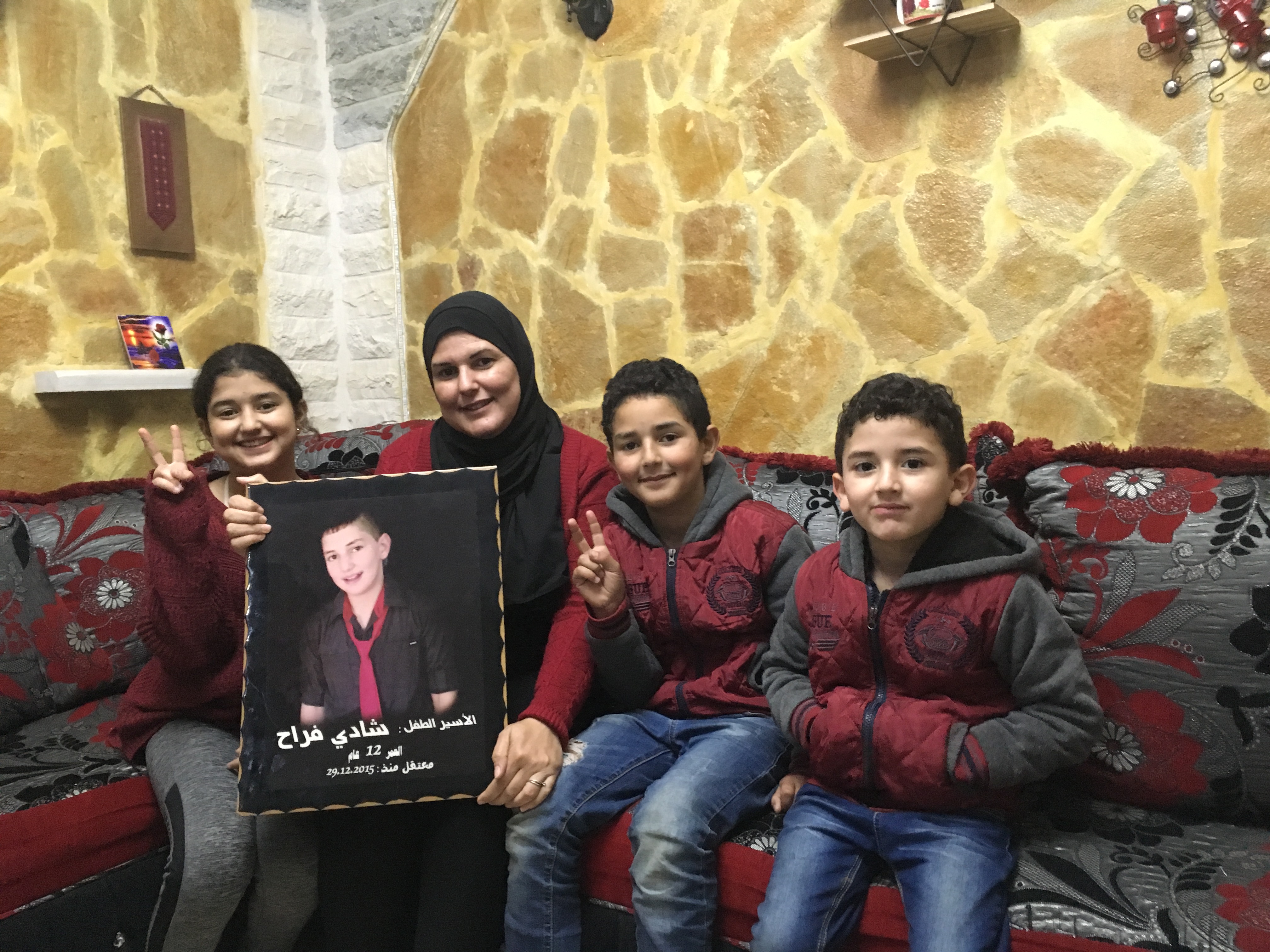Tag: statements
-
“Hundred Million Dollar Home” Hebron Shop Keeper Punished for Resistance to Occupation
2nd February 2019 | International Solidarity Movement, Al-Khalil team | Hebron, occupied Palestine Today, our good friend Abdulraouf Al-Mohtaseb’s, the famous owner of the 100 Million Dollar home , had his shop enclosed by steel barricades. We condemn this blatant act of aggression by the IDF against shop owners in the Old City of Al-Khalil. This…
-
Shadi Farah and Ahmad Zaatari are finally released from Israeli Jail
3rd December 2018 | International Solidarity Movement, Ramallah Team | Ramallah, Occupied Palestine
-
Farihan Farah’s painful separation from her son is nothing new for Palestinian mothers
22nd November 2018 | International Solidarity Movement, Ramallah team | Kafr Aqab, occupied Palestine Nearly three years after being locked up in a detention center in Northern Israel, Shadi Farah, currently the youngest child imprisoned by Israel, is finally going home. “I feel that this month has been the longest month of my life.” Farihan Farah…



